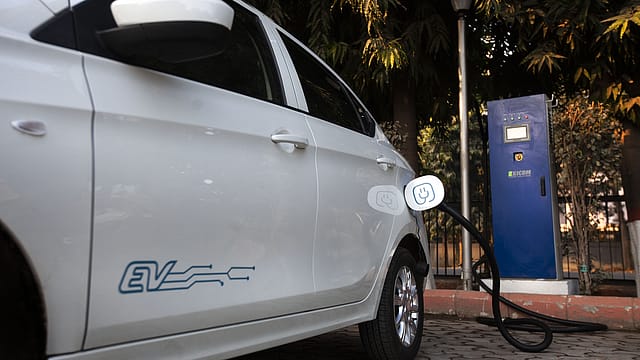Hybrid EVs less polluting than battery EVs: IIT-Kanpur
ADVERTISEMENT

A study conducted by a team of IIT Kanpur experts suggests that Hybrid Electric Vehicles (HEVs) are more environment friendly than Battery Electric Vehicles (BEVs) on the basis of comparative Life Cycle Emissions Analysis (LCA) of both power trains. HEVs operating with E-fuels emerged as the way forward for sustainable transport in India.
The study, published in March 2023, was conducted to evaluate the LCA and Total Cost of Ownership (TCO) for BEVs, HEVs, and Internal Combustion Engine Vehicles (ICEV) powertrain options available in India.
The report said that the experts chose two comparable combinations of BEV, HEV, and ICEV for the analysis. While one set was of foreign companies manufactured vehicles, the second set was of Indian companies manufactured vehicles. "A comprehensive 'Cradle to Grave' analysis was conducted to evaluate the test vehicle's green house gas (GHG) emissions during its lifetime. The sensitivity analysis for LCA was performed for one-time battery replacement during its lifetime, region-wise, different fuel blends, and distance travelled during the vehicle lifetime," the report said.
The results suggested that life cycle GHG emissions for HEVs were lower than BEVs and ICEVs for both foreign and Indian brand vehicles. While the life cycle GHG emissions for all four cases of sensitivity analysis were the lowest for HEVs, the GHG emissions for ICEVs were lower than BEVs during the vehicle production stage. However, after a certain distance travelled, the emissions reduced for BEVs than ICEVs.
January 2026
Netflix, which has been in India for a decade, has successfully struck a balance between high-class premium content and pricing that attracts a range of customers. Find out how the U.S. streaming giant evolved in India, plus an exclusive interview with CEO Ted Sarandos. Also read about the Best Investments for 2026, and how rising growth and easing inflation will come in handy for finance minister Nirmala Sitharaman as she prepares Budget 2026.
The well-to-pump GHG emissions for gasoline-ethanol blends increased with an increasing fraction of ethanol in the fuel used. The GHG emissions for electricity generation in India vary with the region because of variations in the source of electricity generation.
The IIT researchers used the TCO evaluator of World Resources Institute India (WRI) for the analysis. The sensitivity analysis for TCO was conducted for the price of a one-time replacement of the battery; distance travelled per year, vehicle purchase price reduction, and fuel and electricity price changes.
It concluded that the HEVs would be the most economical vehicle powertrain option if the same subsidies were applied to both BEVs and HEVs. "Even though HEVs are more environmentally sustainable than BEVs, current tax and subsidy schemes penalise them, limiting their adoption in India despite their lower LCA and lower TCO on a level playing field basis," the report said.
The IIT Kanpur team that prepared the report was led by Dr Avinash Kumar Agarwal, J C Bose National Fellow and SBI Endowed Chair Professor, Department of Mechanical Engineering. The study was supported by New Energy and Industrial Technology Development Organization (NEDO), Japan.
